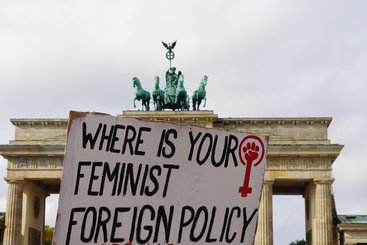Concerted backlash against progress on gender equality, LGBTQI+ diversity and feminism is now a well-recognised global phenomenon. How can states declaring feminist foreign policy take coordinated action to defend and uphold hard-won rights?
If feminist foreign policy's (FFP) core objective is to advance gender justice and broader equality, then tackling the causes and tactics of anti-gender backlash must be a priority. FFP states are strategically well placed to coordinate and tackle the complexity and international nature of anti-gender movements, and policy action can be taken at three levels: domestically, bilaterally and globally within regional and multilateral spaces.
From their unique positions of power and influence on the global stage, FFP states have the potential to work together to create a more effective barrier against cross-border forces that are currently fuelling a regression on women’s and LGBTQI+ rights around the world.





